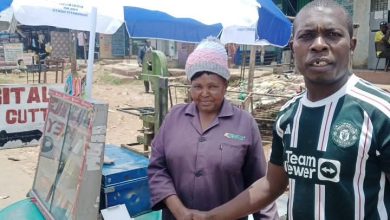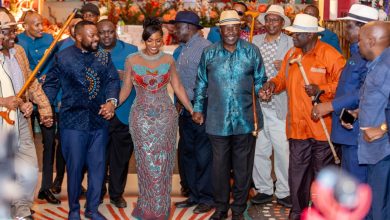FEMNET4GTE Africa Action Workshop Addresses Gender Inequalities in African Education: Creating a Change Roadmap

Aug. 27, Nairobi, Kenya
More than fifty politicians, legislators, activists, and education specialists have gathered in Nairobi, Kenya, for a two-day Africa Regional Action Workshop organized by the Feminist Network for Gender Transformative Education (FEMNET4GTE).
The Workshop’s goal is to bring together discourses and improve collective and concrete activities to impact and disseminate continental and sub-regional strategies (CESA (2026-2035), CTVET), as well as sub-regional strategies and gender equality initiatives in education.
In her introductory remarks, Ms. Lydia Madyirapanzi, Executive Director of FAWE Zimbabwe, emphasized that education is a vehicle for reparative justice and that its atmosphere, methodology, and content genuinely challenge norms and spur change.
“In order to ensure that no learner is left behind, it is necessary to address the ways in which gender intersects with disabilities, displacement, poverty, and crisis contexts. Most importantly, without sufficient funding, gender transformative education remains an unfulfilled promise. We must not only advocate for sustainable investments but also critically examine how we use our resources in Africa,” Ms. Madyirapanzi stated.
Over 210 organizations, governments, scholars, and advocates are part of the intergenerational campaign FEMNET4GTE, which aims to eliminate systemic barriers in education and make sure that schools everywhere become hubs for gender equality and justice.
“As GTE proponents, can we cooperate to end generational inequality?” Eduard Beukman, OXFAM, was posed.
With the African Union’s 2025 theme, “Building a united front to advance the cause of justice and payment of reparations to Africa,” emphasizing education as a crucial instrument for reparation, dignity restoration, and social transformation, the Africa Regional Action Workshop 2025 comes at a key juncture.
Furthermore, the Workshop’s thematic focus will include a keynote panel, best practices sessions, a feminist policy roundtable, and youth-led moments, as well as action planning, wellness, and solidarity spaces. It will also build on the outcomes of the Beijing +30 review and key continental platforms such as CESA strategy meetings and the Gender is My Agenda Campaign.
Ms. Alinate Malonje, the FEMNET4GTE Community Coordinator, would like to thank the participants as well as FAWE, OXFAM, Plan International, Usawa Agenda, GCE, ANCEFA, and all members of the organizing committee for their dedication to gender transformative education and for their leadership.
“We are unable to face the harsh facts.” Ms. Malonje said, “International funding for gender equality, girls, education, and women’s rights is declining while hate and division are on the rise. At the same time, 122 million girls are not attending school, one in four face early or forced marriage, 138 million children are engaged in child labor, and a child is killed by violence every four minutes.”
In order to guarantee long-lasting and significant change, the Workshop also aims to assist in the creation of national action plans based on FEMNET4GTE insights and best practices.
By providing forums for intergenerational discussions, policy roundtables, and youth-led sessions, it will strengthen the voices of feminists and young people in the formulation of public policy. It will also cultivate a long-lasting community of practice by fostering solidarity and cooperation between governments, civil society, academia, and the grassroots.
FAWE urged delagates to use their collective voice to influence continental and global spaces, from AU platforms to the UN General Assembly, to ensure that GTE is included in the post- 2030 Agenda and to follow up at the national level to ensure that the workshop discussion results in tangible change for students throughout Africa.
Our strength is in our solidarity. Justice is education. To ensure that every problem gets addressed, let’s defy gender stereotypes and speak up.






